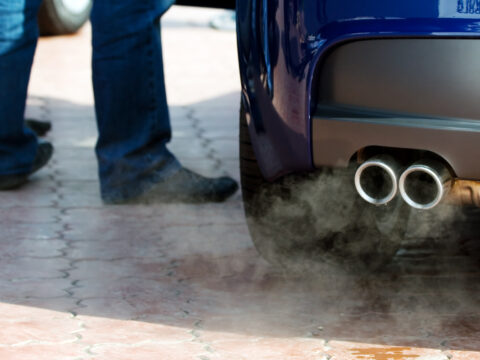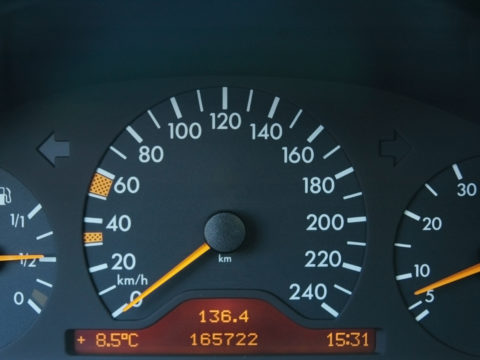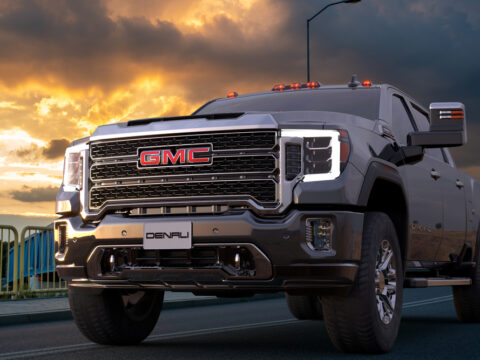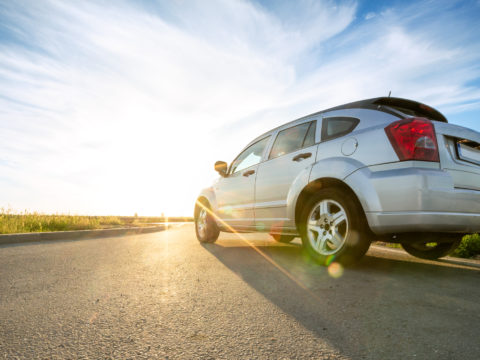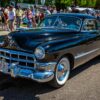One of the most frustrating problems facing drivers today is going to start your car in the morning and having your engine die. Sometimes, it may even turn on for a few seconds before dying.
Finding the cause can seem like a challenging task. Let’s look at a few reasons why your car may do this and how to fix them.
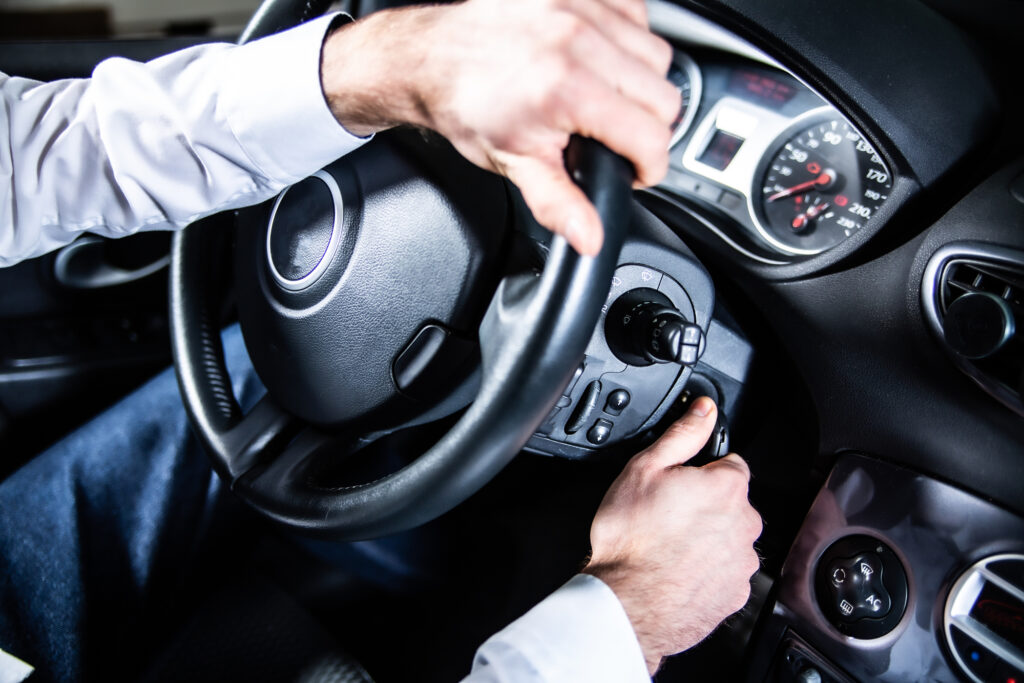
Contents
Why Your Car Starts and Then Dies After a Few Seconds
Since the modern combustion engine needs a few things to work efficiently, it can be challenging to figure out which exact component is malfunctioning.
If you’ve tried to start your car multiple times and it continuously fails, do not keep trying, as this can flood the engine.
Several things can cause your car to die after starting, including an empty fuel tank, ignition problems, vacuum leaks, and a few other possible part failures. You might need to hire a professional mechanic if you can’t diagnose the issue yourself.
Lack of Fuel
An empty fuel tank is one of the most common reasons your car may die after starting. Combustion engines need fuel to start. Your car’s engine may briefly turn on if there is a small amount of gasoline in the fuel line to start the engine but die shortly after due to a lack of fuel to keep it running.
Fixing an empty fuel tank is as easy as filling it up with new gasoline at the pump station. If your car’s problem is an empty fuel tank, it should run perfectly with more gas.
Ignition Issues
Another likely set of issues causing your car’s failure could include problems with the ignition or its relevant parts. The ignition system supplies the spark needed to start a combustion engine.
If there is a problem with something in your ignition, it could cause your car to die immediately after starting or to idle roughly.
Ignition system issues can include:
- Faulty spark plugs
- Damaged ignition switch or coil
- Damaged wires
- Faulty sensors
- Battery issues
Some of these potential ignition errors can be solved easily at home. However, if you have problems diagnosing the specific error, you should consider hiring a professional.
Faulty Fuel Injector
A faulty fuel injector could cause your engine to misfire or stall because the fuel injector’s role in the combustion engine is to inject the right amount of fuel into the engine to start and keep it running.
If the fuel injector fails, it could cause your engine to run on fewer cylinders than necessary.
You can feel the injectors with your hands click when functioning correctly. If you don’t feel your fuel injectors all clicking when starting, you may have a faulty injector.
Vacuum Leak
Air is another essential ingredient required for a combustion engine to work. If you have a vacuum leak, your engine might stall or misfire due to an uneven ratio of air and fuel.
While most car engines can function with minor vacuum leaks, a large leak could cause your car to simply not start at all.
Idle Air Control Malfunction
The idle air control valve controls the mixture of air and fuel in the car’s engine while idling. It also helps balance the idle load when turning on things like the air conditioning or headlights.
The idle air control valve can malfunction for several reasons, including dirt or issues with the wiring.
If the idle air control malfunctions, it could cause an unbalanced amount of fuel to get injected into the engine. An unbalanced fuel and air ratio could cause your car to stall more often.
What About When the Car Starts, Then Dies, and Won’t Start Again?
If your car begins stalling or turning off often and suddenly just won’t start, the problem may be more severe than an empty gas tank or a faulty spark plug.
Some malfunctions within the combustion engine can leave you stranded suddenly, such as a dead battery or a clogged fuel filter.
Faulty or Dead Battery
The most common reason for your car not starting is a dead battery. If your battery has a low charge, it could cause your engine to start and die shortly after. If your car refuses to start again after this, you may need to replace the battery.
Maintaining a regular maintenance schedule with a professional can help to avoid getting stuck somewhere with a dead battery.
Damaged or Clogged Fuel Filter
If your fuel filter becomes clogged or damaged, it can cause your engine to fail. This failure happens because the fuel filter works with the fuel pump to regulate the amount of fuel injected into the car’s engine.
Fortunately, fuel filters are easy and typically affordable to replace. Replacing or cleaning your fuel filter should be a regular part of your car maintenance.
Sensor Malfunction or Electrical Issues
Sometimes your engine trouble could be due to electrical issues, or there could be a blocked or broken sensor somewhere.
If a sensor in the engine becomes blocked, damaged, or dirty, it could cause the engine to stall or not start at all.
Additionally, damaged electrical wires could cause malfunctions with your car’s engine.
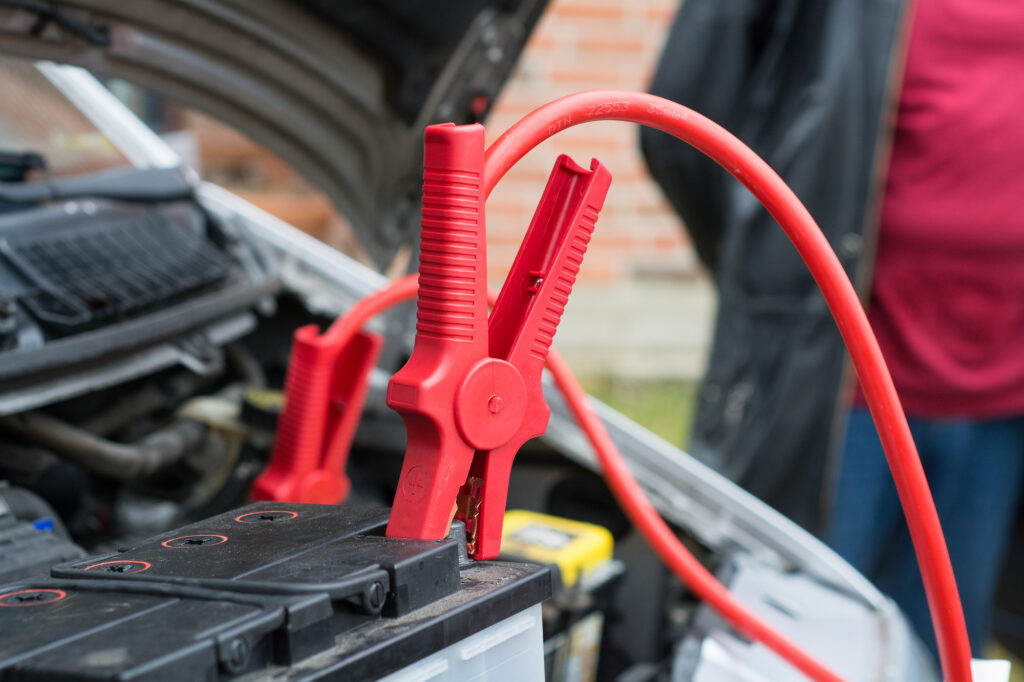
What To Do When Your Car Starts, Then Dies?
First, you must diagnose what is causing your car to die after being started. Depending on the cause, you may need to hire a professional mechanic to solve the issue.
However, there are several things you can do to repair the problem causing your car to die after starting.
Look at the dashboard as you attempt to start it and see if there are any lights on. If no lights are on, you should check the fuel levels, fuel filter, and battery next. These are the most common causes of engine malfunctions.
Check Fuel Levels and Battery
When diagnosing the cause of your car’s malfunction, you should first check the most common areas. An empty fuel tank or a dead battery is the most common reason for your engine to die after starting.
Your fuel tank needs enough gas to keep the engine running once it starts. If your fuel tank has gas and your car still won’t stay running, you should check the battery connection and charge.
The battery could become disconnected, which would prevent your car from starting. You may need to replace the battery entirely.
Replace Your Fuel Filter
The next place to look would be the fuel filter. You’ll want to check if it’s clogged or damaged. Unclogging a fuel filter is typically more work than its worth.
Fuel filters are affordable and easy to install. Instead of trying to clean it, you should consider replacing a clogged filter.
Repair Your Ignition Issues
When it comes to problems in the ignition system, there can be two most likely causes of your car dying after starting. The first potential cause is faulty spark plugs.
Spark plugs are one of the easiest problems in an engine to fix. Replacing a spark plug can be done at home in minutes.
The second cause could be an issue in the spark plug wiring. Faulty wiring would be a much more severe issue and likely need professional service to fix.
Repair or Clean Your Sensors
Sometimes the sensors within the engine can become blocked by dirt and oil. When this happens, it can cause the engine to fail on startup. Cleaning them off is a simple fix if the sensors are just dirty. However, the sensors can also have electrical issues.
Electrical delays or errors can cause the sensors to malfunction when signaled, causing the engine to die. You may consider hiring a professional if you believe the problem is electrical.
Identify and Repair Any Leaks
Leaks can happen in any of the pipes and valves within the combustion engine. You may want to perform a smoke test if your suspect there are leaks.
A smoke test is where smoke gets blown through your car’s intake. The smoke will then come out of where the leak is.
Identifying the leak may be easier than repairing it, depending on where the leak is. However, most leaks are from damaged seals, which are fairly easy to repair or replace.
When To See a Mechanic
Most issues within your car’s engine will trigger the Check Engine light to turn on. The Check Engine light turns on when there is a problem within the engine that needs attention.
If your car’s Check Engine light comes on and you cannot diagnose the problem yourself, you should see a mechanic.
Alternatively, if your car stops running suddenly or begins stalling often, you should see a mechanic to ensure your vehicle is in the best and safest driving conditions.

